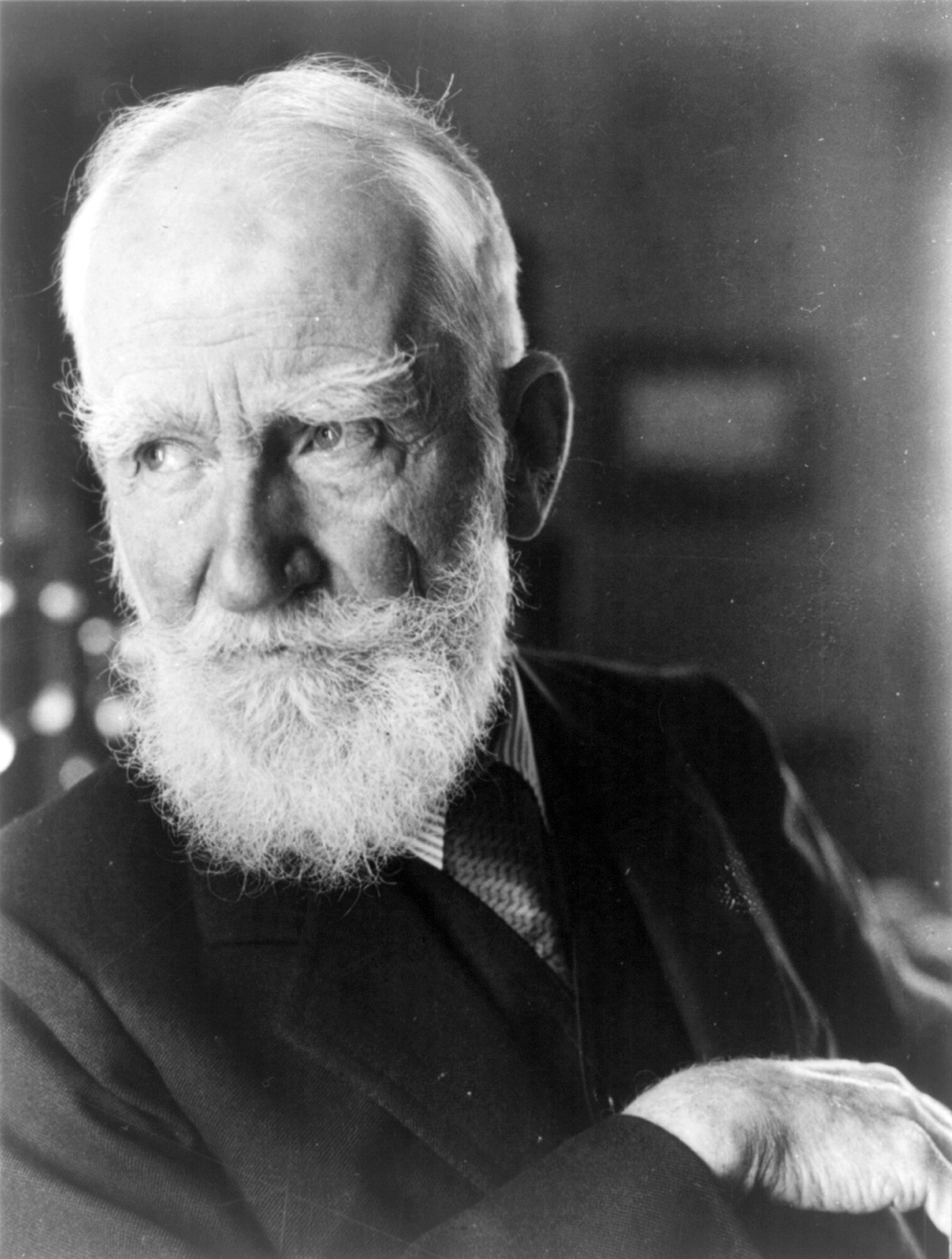
Heartbreak House
Heartbreak House: A Fantasia in the Russian Manner on English Themes is a play written by George Bernard Shaw, first published in 1919. The English language premiere was at the Garrick Theatre in November 1920. According to A. C. Ward, the work argues that "cultured, leisured Europe" was drifting toward destruction, and that "Those in a position to guide Europe to safety failed to learn their proper business of political navigation".[1] The "Russian manner" of the subtitle refers to the style of Anton Chekhov, which Shaw adapts.
Heartbreak House
November 1920
Garrick Theatre, New York
English
A dinner party at an eccentric household during World War I
Major themes[edit]
Society[edit]
The house could arguably be a metaphorical reference to a ship which must be guided capably, not only by its crew, but also its passengers. Each character in the house represents to some degree a facet of Edwardian British society, Mangan being the nouveau riche capitalist, Hesione the flighty Bohemian, Ellie a struggling member of the bourgeoisie and so on. Shaw divides the Edwardian upper-class into two facets: the traditional country-based gentry and aristocracy (those of Horseback Hall) and the rentier upper middle-class (those of Heartbreak House). The "horsey set" are identified with activity, most of it pointless; the rentiers with passivity, equally pointless. Both groups share the delusion that their worlds could continue to travel in tandem forever, which they did until Sarajevo.
Character traits[edit]
One of Shaw's most important and evident themes is reality versus appearances. By the end of the play, each character is revealed to be nothing like who they appeared to be in the beginning. Mangan, who was reported to be "a Napoleon of industry" is revealed in the third act to be virtually penniless and incapable of running his own businesses. It is in fact Mazzini who runs Mangan's businesses although he at first appears mild and incompetent.
Fate[edit]
Mazzini's belief in fate ruling his life reinforces his feeble ability to control his situation and according to the captain dooms the ship to destruction unless competent navigation can be learned:
Captain Shotover: "Navigation. Learn it and live; or leave it and be damned." (p. 141)
Play in performance[edit]
The play was first performed in New York at the Garrick Theatre in November 1920, with Albert Perry as Shotover and Elizabeth Risdon as Ellie Dunn. It was first presented in England on 18 October 1921, at the Royal Court, with Ellen O'Malley as Ellie and Brember Wills as Shotover. Edith Evans played Lady Utterword.[8]
Heartbreak House is not often performed due to its complex structure; however it is argued that the genius of the play cannot be fully appreciated without seeing it in performance. Its subject-matter is the ignorance and indifference exhibited by the upper and upper-middle classes to the First World War and its consequences. The self-indulgence and lack of understanding of the high-class characters are central issues in British society at the time that the play illuminates.
A prominent production in America was at the Pasadena Community Playhouse in 1938, directed by Hale McKeen, with Gilmor Brown as Captain Shotover and George Reeves (then George Bessolo) as Hector Hushabye.[9]
In 1965 the play was staged by the Edinburgh Gateway Company, directed by Victor Carin.[10]
It was directed by John Schlesinger in a production by the National Theatre at the Old Vic in 1975 with Anna Massey, Colin Blakely, Eileen Atkins, Patience Collier and Kate Nelligan.[11]
In 1981 it was produced at the Royal Exchange, Manchester directed by Jonathon Hales with Eleanor Bron and Lynsey Baxter
During their 1982–83 season, the Guthrie Theater had a production starring Julianne Moore
An uncut, star-studded production at London's Haymarket Theatre in 1982, directed by Trevor Nunn, brought the play back to prominence in England. The cast was led by Paul Scofield (Shotover) and Vanessa Redgrave (Hesione), with Daniel Massey (Hector), Felicity Kendal (Ariadne), Imogen Stubbs (Ellie), David Calder (Boss Mangan), Oliver Ford Davies (Dunn) and Joe Melia as the Burglar.
A major Broadway revival was mounted in 1984, with an all star cast headed by Sir Rex Harrison as Shotover (a role for which he was nominated for a Tony), and featuring Amy Irving, Rosemary Harris, Dana Ivey, George N. Martin and Tom Aldredge.
The play has been performed several times at the Shaw Festival in Niagara-on-the-Lake, Ontario, Canada: most notably in 1968 directed by Val Gielgud and with Jessica Tandy, Paxton Whitehead, Tony Van Bridge and Frances Hyland (this production was recorded and released by Caedmon Records [Caedmon TRS-335]); then in summer 2011 directed by Christopher Newton with Michael Ball as Captain Shotover, Blair Williams as Hector, Patrick McManus as Mazzini, Laurie Paton as Ariadne, Benedict Campbell as Mangan and Robin Evans Willis as Ellie. It also formed part of Chichester Festival Theatre's 50th Anniversary Season in 2012 and cast Derek Jacobi as Captain Shotover. The Denver Center Theatre Company staged it for a run 30 March to 29 April 2012.
It is available on VHS based on the 1985 television version directed by Anthony Page, with Rex Harrison as Shotover, Amy Irving as Ellie and Rosemary Harris as Hesione.[12]
Also available on DVD is the 1977 BBC Play of the Month version directed by Cedric Messina, with John Gielgud as Shotover, Lesley-Anne Down as Ellie and Siân Phillips as Hesione.[13]
The play was performed at Shaw's Corner 25–27 July 2014, produced by Michael Friend and by the Abbey Theatre, Dublin from 14 August to 13 September 2014.
In 2018, the play was staged Off-Broadway from 28 August to 29 September.[14] The production was directed by David Staller and produced by Gingold Theatrical Group, a New York-Based Theatre Group dedicated to presenting plays that echo Shaw's values.[15]
Aleksandr Sokurov's loose film adaptation Mournful Unconcern (Skorbnoye beschuvstviye) was made in 1987.